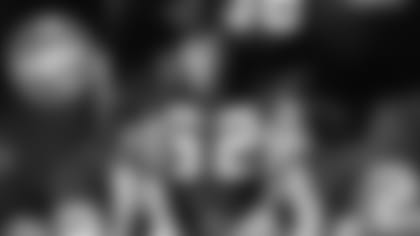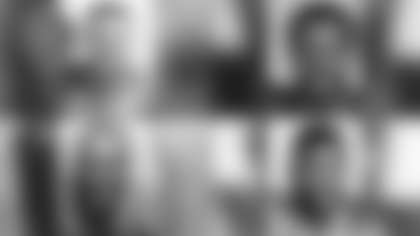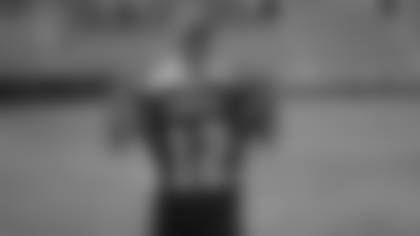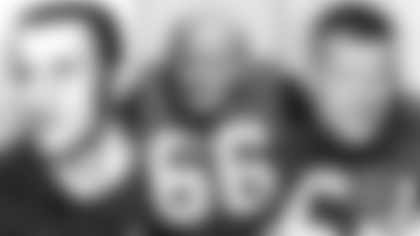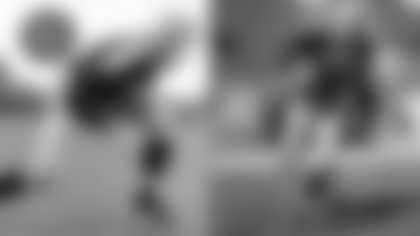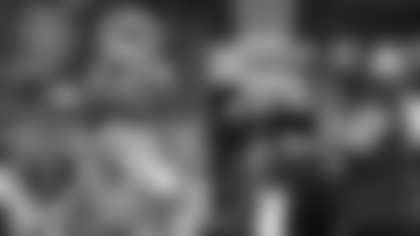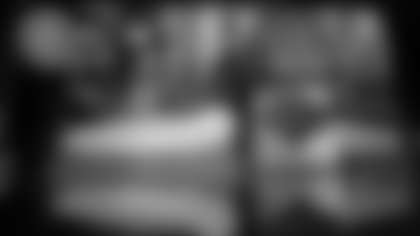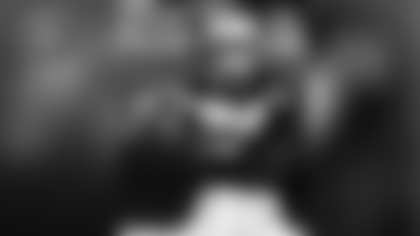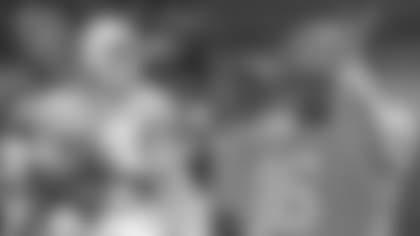Cliff Christl started gathering oral histories with former Packers and others associated with the team in 2000 and will continue to gather them as Packers historian. Excerpts from those interviews will be periodically posted at www.packers.com. This is the second of two parts with Bill Lueck.
Guard Bill Lueck played for the Packers from 1968 to 1974 and was the starting left guard for all but his rookie year and when he was injured during his final season. Lueck underwent knee surgery following the 1974 season, went to training camp in 1975 in what was Bart Starr's first year as coach, asked to be traded and was shipped to Philadelphia in late August for an undisclosed draft choice. Lueck started 11 games for the Eagles before his season and career were ended by another knee injury.
On how the Packers won the NFC Central Division in 1972 with Dan Devine as coach: "Talent. Nobody liked him. You know what it was? We were going to win in spite of him. The thing was I know nobody on that team who didn't have pride. Are you going to lie down because you hate the coach? No. You have pride. You never go out and not give your best effort."
In spite of him? "In spite. In spite. We should have won more games than we did."
On why the players didn't respect Devine: "He didn't know how to interact with the players. There was a locker room protocol. How to get along. When to call somebody out or raise your voice. You learn how to be a team and how to get along. (Devine) didn't understand that."
On whether Devine actually drove wedges between the players: "He did. During films. Everybody is going to have a bad play. If you played 60 or 70 plays, you're going to miss a block or two. Devine was peculiar in how he could divide people by calling certain players out when somebody else was doing worse and he'd ignore that."
On whether the 1972 Packers were good enough to win the Super Bowl: "Yeah. You know what cost us in the playoffs? Kept running the ball, same damn play and tried to beat (Washington) up when (the defense) stacked (at the line of scrimmage) and knew the play we were running. They were calling it out at the line of scrimmage. Oh man! Same play. We're running it over and over. Tried to pound the ball. We needed to throw the ball. We could have thrown some short passes. But it was pound, pound, pound. You've got a five-man defensive line. You don't run, you're short a blocker."
On fullback John Brockington, a 1,000-yard rusher that season: "You're talking about another guy who should be in the (Pro Football) Hall of Fame. John Brockington was the toughest, hardest-hitting running back that I knew. We used to joke, 'Nobody wants to be the first guy to make contact with John Brockington.' He was a beast. Nobody wanted to tackle him. He'd run over the first guy. That was his game. Power. But he was elusive also. That's what made him such a dangerous running back. He may run over you the first play, and the next play you're all tensed up and ready for this major collision, and he'd put a move on you. You never knew what was coming: A move or run over you."
On halfback MacArthur Lane, who rushed for 821 yards and led the team in receiving in '72: "Same (as Brockington). Great blocker."
On quarterback Scott Hunter: "We all liked Scott Hunter."
On Hunter's advantage over former No. 1 draft pick and Green Bay native Jerry Tagge: "Some guys can automatically get along in a locker room. Be a leader, like Bart. Like Zeke (Bratkowski). Some quarterbacks just have that knack. Hunter was good in the locker room."
On Bob Brown, one of two defenders in 1972, along with Fred Carr, to make the Pro Bowl: "What a stud. Big Bob Brown. That guy was one of the best defensive tackles around. I'm surprised he didn't get more attention than he did. He could move. Even big, he could move. Thankfully, the coaches kept after him about his weight. He was quicker when he was lighter. He was more of a run guy. Bull rusher."
On Devine's four-year run as Packers coach: "That was the worst thing that happened to Green Bay."
On his thoughts about Rollie Dotsch, Devine's line coach all four years: "How did he get the job?"
On whether he schooled him on anything: "Nope."
Didn't he have a big personality? "Yes, but as far as being a line coach, I don't know."
On Pro Football Hall of Fame tackle Forrest Gregg, a teammate from 1968-70 and player-coach with the offensive line the last two seasons: "Great feet. He could pass block. He could run block. He had better feet than anybody. He could have been a ballerina."
On left tackle Bob Skoronski, a teammate his rookie year: "He was a good leader."
On guard Jerry Kramer, also a teammate as a rookie: "He was good at pulling, yeah. Jerry had good footwork. He'd blow anybody else off the line, but what got him in trouble with guys like Alan Page, who was smart enough and weighed 255 pounds or so, was: Boom! Head slap. Yank. (Alex Karras) same thing. My rookie year, they'd tell me, 'There's two guys (Page and Karras) he (Kramer) can't block because he's overly aggressive."
On Gale Gillingham, a teammate for seven years: "I still think Gale Gillingham is the best guard. Why he isn't in the Hall of Fame? He should have been years ago. Ask anybody who played against him, who was the guard they feared the most and it's Gale. To this day, I'm in San Diego part of the year, and I see (former Chicago Bear) George Seals, a defensive tackle we used to play against. He says nobody wanted to line up across from Gale Gillingham on a drive block. He'd put them on their back."
On Gillingham's specific strengths: "He could come off the ball under control. He lifted weights. Gale could bench 450 pounds. He could squat 600-plus pounds. The best. When we'd do the nutcracker (in practice), the one-on-one, the defensive guys would look to see where Gale was and back up one or two spots. Nobody wanted a piece of Gale. Nobody. Against Gale, you were dead."
On Gillingham's feet and agility for someone that powerful: "You had to be able to run to play guard in Green Bay. Yes, Gale could run. He could turn, twist."
On whether Gillingham was better at run blocking or pass blocking: "Both. He'd never over-commit. He was good at punching. He didn't have to hold. He was strong enough. He could, Boom! And get the distance."
On why Devine moved Gillingham to defensive tackle in 1972: "That was the dumbest thing. I don't know. It was terrible. He was the best offensive guard and he moves him to defense. (Gillingham) didn't like it, but what are you going to do if the coach tells you to do something."
On whether the season-ending knee injury Gillingham suffered playing defense in 1972 affected his play when he went back to offense: "Once the knees start going, I know."
On Gillingham's influence on his career: "What Gale told me my rookie year was, 'Bill, because Jerry fires off the ball and tries to knock him on his back, all (Page) does is head slap, step aside and he's right on top of Bart. Bam! It was brutal. Gale taught me how to come off the ball under control because Page was going to: Boom, boom, head slap me and yank my jersey. Once he'd get you turned, you were done. Then they'd swim over you."
On whether it was true that Devine tapped Gillingham on the shoulder at his locker once, told him to come upstairs and then gave him a big raise trying to buy his loyalty: "That was true. Tapped him on the shoulder. We thought, 'Oh shoot.' We were concerned he was maybe trading him. Who knows what? He gave him more money. Hey, he deserved it."
On center Ken Bowman, a teammate from 1968-73: "He could take on middle linebackers. When they'd blitz him, he would crush them. He was the best center I saw and we watched films all the time. There was nobody better than Ken Bowman."
Even at 230 pounds? "Yeah, but he was strong. You know what else it is? Smarts. And he was a mentor. I'll tell you what, you didn't want to play against him. Dynamite comes in small packages. He'd knock you on your a--. It's not always the size. It's how fast you are off the ball. And with Ken, he was so darn smart. He was tough. He was not a self-promoter and neither was Gale."
On how Bowman's knowledge of the game helped him: "Back in the day, we'd get dinged all the time. We'd get hit in the head so much you couldn't remember the play. All of us offensive linemen would go, 'Ken, what do we do?' He knew everybody's job. Ken would go, 'OK, Bill, you're pulling right and kicking out the defensive end' on like a 43 trap. Or, 'Bill, you're pulling left and sweeping and taking out the guy who forces,' usually the safety. He'd do all this as we were going to the line of scrimmage."
On Bob Hyland, the ninth overall pick in the 1967 NFL Draft and a teammate for two years: "He was a backup guard before I got there. I think he was more a center than a guard. I think maybe it was the way he pulled (that was a problem at guard). He wasn't great at pulling."
On why Hyland, at 6-foot-5 and 255 pounds, couldn't beat out the smaller Bowman: "Nobody was going to beat out Bowman. Ken was so smart. He knew the plays as well as the quarterbacks."
On Dick Himes, who replaced Gregg as the starting right tackle in 1970 and a teammate for all seven years: "He was good at both (run blocking and pass blocking). Dick Himes had really good feet."
On 6-foot-8, 258-pound left tackle Bill Hayhoe, a teammate from 1969-73: "Bill Hayhoe was a really good pass blocker. Good feet. Hayhoe was a better pass blocker than a run blocker."
On left tackle Francis Peay, a teammate from 1968-72: "He was always calm and collected. Really into the game. Great feet. He was a better pass blocker. You never turned the corner on Francis Peay."
On why Peay walked out of camp in 1971, despite being one of Devine's former players at Missouri, before returning: "Nobody liked Devine. Francis Peay was done. Done with Devine."
On guard-tackle Malcolm Snider, a teammate from 1972-74: "I never noticed anything super exceptional."
On center Cal Withrow, a teammate from 1971-73: "Cal was a backup. But Cal Withrow brought a lot of humor and fun to the locker room."
On tight end Marv Fleming, a teammate from 1968-69: "Catch everything. Great blocker."
On tight end Rich McGeorge, a teammate from 1970-74: "Not as good a blocker as Fleming, just as good a receiver. I'm not sure who would be the fastest."
On halfback Donny Anderson, a teammate from 1968-71: "He was a stud. Teams tried to kill him. He took so many brutal hits. You talk about a tough son of a gun. Everybody thought knock Donny Anderson out of the game and their run game is dead. Talented. He was a great receiver. It's not always how fast you are. He could cut on a dime and change directions. He was so good on his feet. The head fake. It didn't even have to be in the open field, you'd see two, three guys coming in after he'd get around on the sweep and he made them miss. He was so elusive."
On halfback Elijah Pitts, a teammate from 1968-69 and in 1971: "Same. He was elusive."
On halfback Travis Williams, a teammate from 1968-70: "He was really fast and then if he saw somebody who was about to catch him, he had another gear. You didn't know where it came from, but he could outrun everybody. He had overdrive."
On whether the Packers still ran the power sweep with their halfbacks after Vince Lombardi's last season as coach in 1967: "(Phil) Bengtson cut back on the sweeps a little bit. Then under Devine it was, 'We're going to pound the ball.'"
On fullback Jim Grabowski, a teammate from 1968-70: "He was a great blocker. He could run. He was a good athlete. He could move."
On whether Grabowski's knee injury in 1967 derailed his career: "Yeah. The surgery wasn't as good as it is now. And the game was so much more brutal."
Lueck, 74, lives in suburban Phoenix. The excerpt above was from a 2019 interview.



